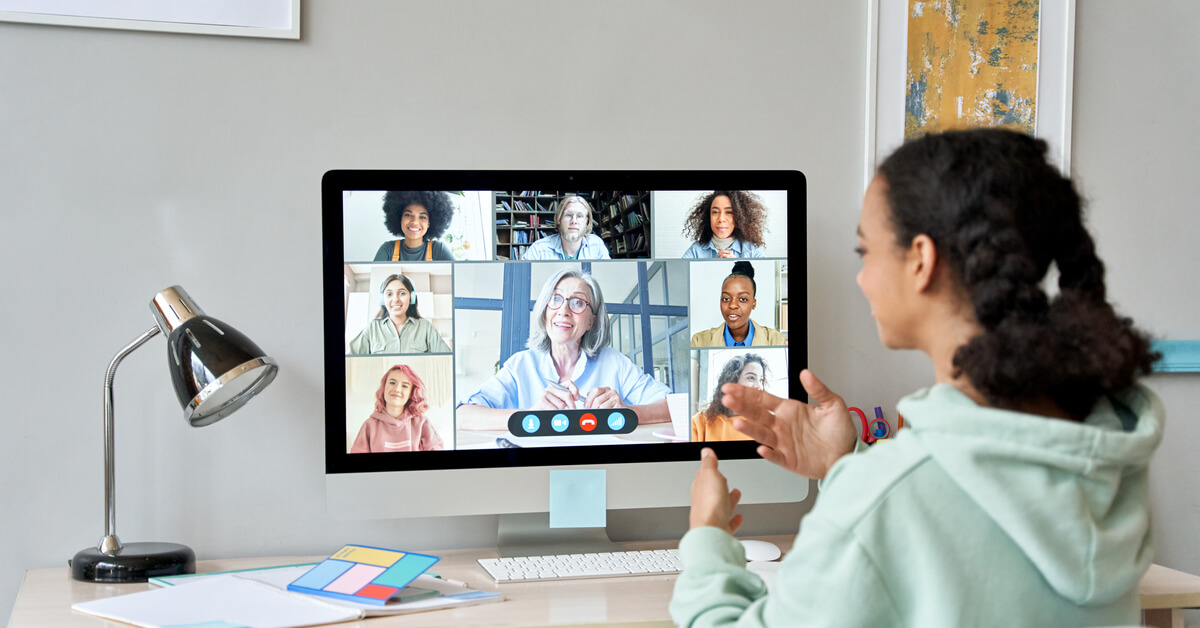In March 2021, I was an online guest participant in an Economics class. My role was to listen to presentations given by two teams of students and ask challenging questions at the end of each presentation. It was not a new role, as I had participated in this project in the past, but had attended the class in person. Most interesting was that I had never questioned the format of the class or the logistics of my role during previous meetings. Somehow, being remote stimulated all of the possibilities that might have made the class provide students with better feedback. Why did the delivery mechanism for an online synchronous class meeting trigger a stronger response than the more traditional setting when I sat in the back of the classroom?
I was suddenly aware of elapsed time, for example. Instead of spending 90 minutes in front of a screen, I might have reviewed a narrated slide presentation (recorded on Zoom) in advance, rewatched the sections I didn’t really understand, and formulated some great questions for the kids. That would have reduced the “class time” to 45 minutes on Zoom. Instead, I watched the presentations live with nervous students speaking rapidly,…



